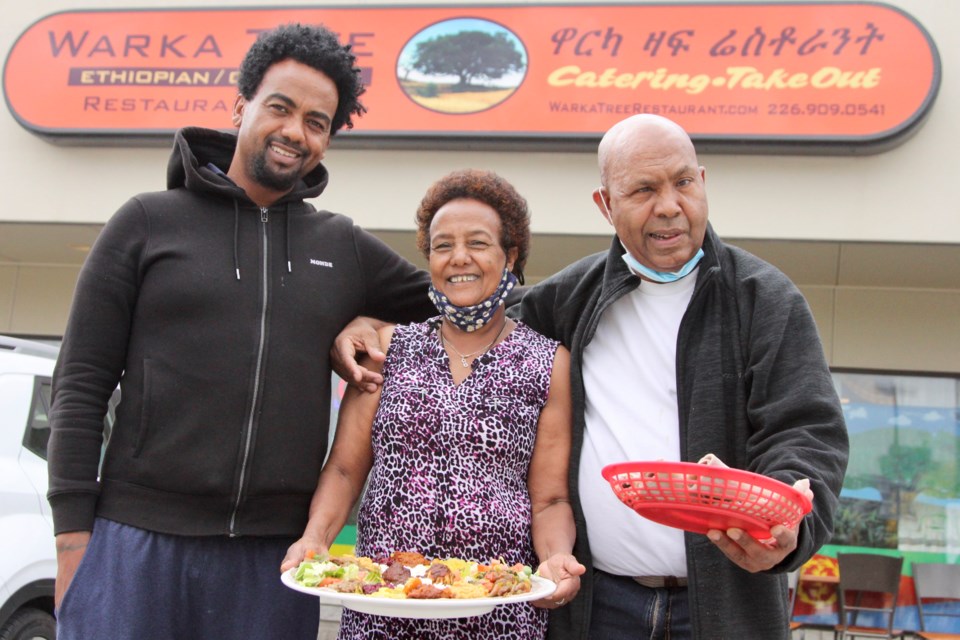Like the native Ethiopian fig tree that is its namesake, The Warka Tree restaurant in Guelph opened five years ago to extend its branches and encompass those that gather under it.
Hailu Wakasha opened the restaurant with his wife Sentayehu Tessema in 2016. The two had a vision to bring the warm culture of Ethiopia through the social aspect of its food where people eat from the same plate and bond together as family.
Wakasha believes that the social aspect of the food resonated with the local community in Guelph so much that when the restaurant closed during the provincial lockdowns, it was the food’s culture that saved the place.
“In a strange way, when it comes to food, we actually gained more customers,” said Wakasha.
Traditional Ethiopian food like that served in the restaurant includes injera, a sponge-like bread made from a grain unique to Ethiopia and several varieties of vegetables, meat and stew.
Wakasha said Ethiopian food truly brings people together and is incredibly diverse. When the pandemic hit, the restaurant opened up a patio outside and even began offering take-out for its customers.
“This food is very social. You eat from the same plate. You eat with your hands,” said Wakasha
“I think people really enjoy that.”
An incense that smells like lemon-pine derived from an Ethiopian plant greets visitors into a cozy setting with handmade curtains and historic wall art that add a house-like feel to the restaurant.
The tables, benches and chairs are hand carved with designs of the rock hewn churches in Lalibela and the Axumite dynasty.
The menu is filled with rich lamb, beef and vegetarian dishes and even quick and easy breakfast and lunch dishes.The most popular dish in the restaurant is the Warka platter which includes lamb or beef, injera and a variety of vegetables generously placed across the plate. Due to their Orthodox Christian beliefs, the family doesn’t sell or consume pork.
When Wakasha and his wife opened the restaurant, they hadn’t the slightest doubt that the people of Guelph would like it.
“We knew the demand that was coming to us. When we did the construction here, it was amazing how many people were lined up,” said Wakasha.
The couple also owns the Hasty Market on Waterloo Avenue.
A few years ago, Tessema began selling simple and easy to grab Ethiopian food at the store. The couple immediately noticed that the food was attracting a diverse crowd whether it was university students, people with an Ethiopian background or locals in the city who tried the food for the first time.
“There was a lot of interest. People were saying ‘this food should go into a restaurant,’” said Wakasha.
Tessema came from a family of culinary experts in Ethiopia who ran numerous restaurants.
“She kind of grew up with it so she always had training for how to open a restaurant,” said Wakasha.
After opening a restaurant in Downtown Guelph for a brief period, the couple moved to 75 Willow Rd. in 2016.
Wakasha describes the restaurant as the warka tree itself, a wild fig tree in Ethiopia that provides food even at times of scarcity.



